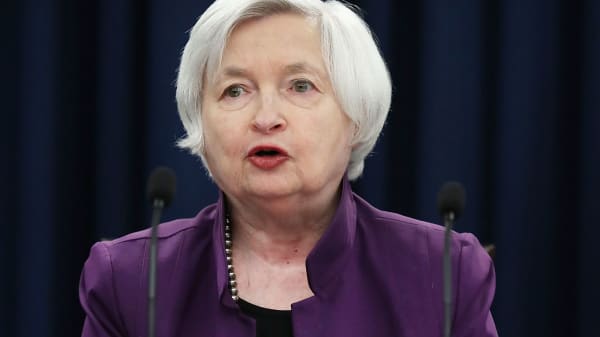Why does the Federal Reserve raise the interest rate? There are two main reasons: Either because inflation is running higher than normal, or because the unemployment rate is lower than normal.
The current inflation rate is 1.9 percent, which is pretty much in line with the Fed's target, so this isn't what the rate hike is in reaction to. The reason the Fed is increasing rates today is primarily due to the remarkably low unemployment rate. The latest Bureau of Labor Statistics release showed the unemployment rate to be 4.3 percent, which has come down from 4.8 percent in January.
Fed policy makers announced a 0.25 percentage point increase. Such an increase in the federal-funds rate — the interest rate the Fed controls that sets the tone for other rates — won't have a huge impact on people's budgets. It'll increase the cost of a $40,000 auto loan by less than $250 a year. Similarly, if you're a retiree living in part off of bond interest income, the quarter-point rate hike won't solve your money problems. That in itself is not a big deal.
What is a big deal, though, is the signal that the Fed is sending to the public through the rate hike. The signal is the Fed's belief that the U.S. economy is strong, that it is operating near or at its capacity.
The Fed looks a lot of data — much more than just the unemployment rate and the inflation rate. So, Fed Chair Janet Yellen and company must pretty confident that the economy is on a stable upward path. All in all, this rate hike, the third one in the last year, is probably signaling good news about the economy.
Commentary by Nelson C. Mark, the Alfred C. DeCrane Professor of International Economics at the University of Notre Dame. He is a research associate of the National Bureau of Economic Research and the North American editor of Pacific Economic Review.
For more insight from CNBC contributors, follow @CNBCopinion on Twitter.
Watch: JPM says Fed on track for balance sheet normalization




